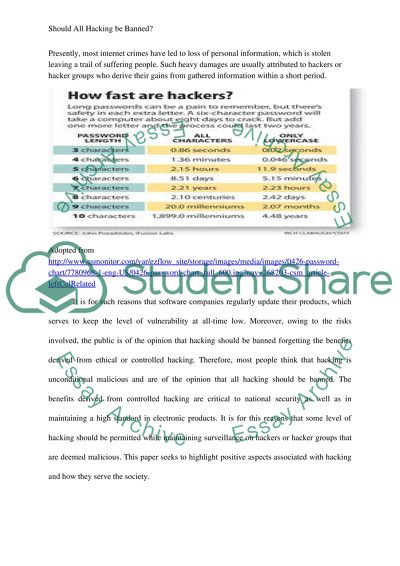Cite this document
(“Should all hacking be banned(Persuasive Paper) Research Paper”, n.d.)
Retrieved from https://studentshare.org/information-technology/1471109-should-all-hacking-be-bannedpersuasive-paper
Retrieved from https://studentshare.org/information-technology/1471109-should-all-hacking-be-bannedpersuasive-paper
(Should All Hacking Be banned(Persuasive Paper) Research Paper)
https://studentshare.org/information-technology/1471109-should-all-hacking-be-bannedpersuasive-paper.
https://studentshare.org/information-technology/1471109-should-all-hacking-be-bannedpersuasive-paper.
“Should All Hacking Be banned(Persuasive Paper) Research Paper”, n.d. https://studentshare.org/information-technology/1471109-should-all-hacking-be-bannedpersuasive-paper.


